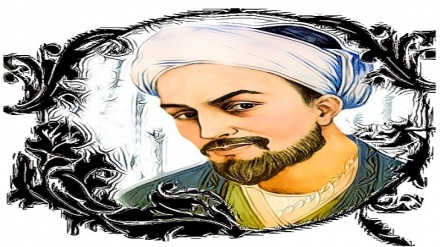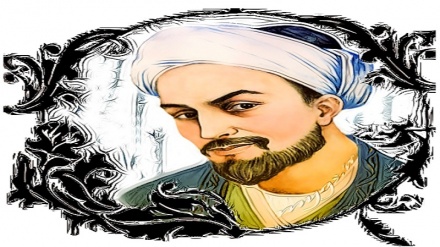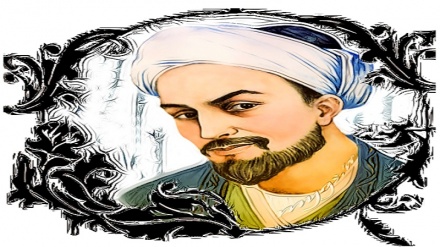Iranian notables, sources of global honor (145)
Today, we introduce one of the main compilations of the renowned Iranian poet, biographer, and lexicographer, Ohadi, who lived in 10th and 11th Centuries AH.
It was said that Taqi Ed-Din Mohammad Ohadi Balyani Kazerouni was born on the third day of the Islamic month of Moharram in the year 973 AH in the city of Isfahan. Many of the members of his dynasty were mystics. He learned the common sciences of his era such as grammar, logic, mathematics, and Holy Quran up to the age of 12, and thereafter he began to learn philosophy and ethics. Part of his adolescence and youth was spent in the cities of Yazd and Shiraz, within which he acquired knowledge by attending the classes of the renowned lecturers of his era. In this phase in time, he developed an interest in mysticism. He recited a quatrain in the festivity that marked the victory of Safavid King, Shah Abbas, against Uzbeks. In the waning months of the year 1014 AH, Ohadi traveled to India in the company of a number of his associates and friends. Several Farsi-speaking poets accompanied Ohadi in this journey. Ohadi headed for the city of Lahore by going through the cities of Shiraz, Kerman, and Qandahar. Not much information is at hand about the date of his death, but it is known that he was alive up until the year 1039 AH, given that some of the poems which he composed up until then, have remained to this day. The fact of the matter is that he has left behind several compilations, including "Arafat al-Aasheqin", and "Ferdos-e Khial".
"Arafat al-Aasheqin" is the signature book of the prolific Iranian poet and compiler, Ohadi. It has been published twice in Iran, while its hand-written copy is kept at Malek National Library. This compilation is comprised of eight volumes and is the most important biography which has been authored throughout the years 1022-1024 AH.
It is a relatively detailed biography, which discusses the fate and presents a selection of poems of more than 3,400 Farsi-speaking poets. This compilation is prepared based on alphabetical order and consists of 28 chapters; each of which belongs to a letter of alphabet.
This book also maintains a detailed Introduction, which elaborates on the biography of the compiler.
Prior to compilation of his signature book, Ohadi prepared another book, named Ferdos-e Khial, which covered a selection of poems, without detailing the biographies of the corresponding poets. Meanwhile, in the year 1022 AH, while Ohadi was staying in the Indian city of Agra, one of the prominent figures over there called on him to complete his compilation Ferdos-e Khial and to add the biographies of poets to this compilation. Ohadi began to author a new book which he named "Arafat al-Aasheqin". During that era, it was common to present written works to well-known figures, the names of which were later registered in the corresponding book. However, Ohadi did not present his book to any leading figure, noting that he did not want to do so because he intended to eternalize the names of poets, whose biographies he had detailed in his signature book. Although this book was mainly completed up until 1024 AH, Ohadi continued to add fresh information on the biographies of poets to his signature book, such that he is known to have added new information to this book even throughout the years 1041 and 1042 AH.
Ohadi's signature book starts with the biography of celebrated and famed Iranian poet, Roudaki. According to the contemporary researcher, Dr. Naqavi, a total number of 3195 poets have been mentioned in this book, while others put the number at 3300 poets. However, upon the precise study of the eight volumes of this compilation, it is found that Ohadi has presented the biographies of more than 3500 Farsi-speaking poets in "Arafat al-Aasheqin".
Ohadi met and conferred with many of his contemporary poets. Based on historical accounts, he consistently attended meetings, in which Farsi poems were discussed. He has cited a selection of these poems in his signature book.
Meanwhile, Ohadi's writing style is not uniformed and a number of differences can be spotted in the different chapters of "Arafat al-Aasheqin". The compiler has gone to extremes in usage of similar terms and synonyms under his penname. His writing style is rather complex, especially when he details the biography of poets.
Given that Ohadi was a talented and renowned poet, and was familiar with different poetic styles, he has made use of his critical views in commenting about other poets and their works in verse.
MR/ME


